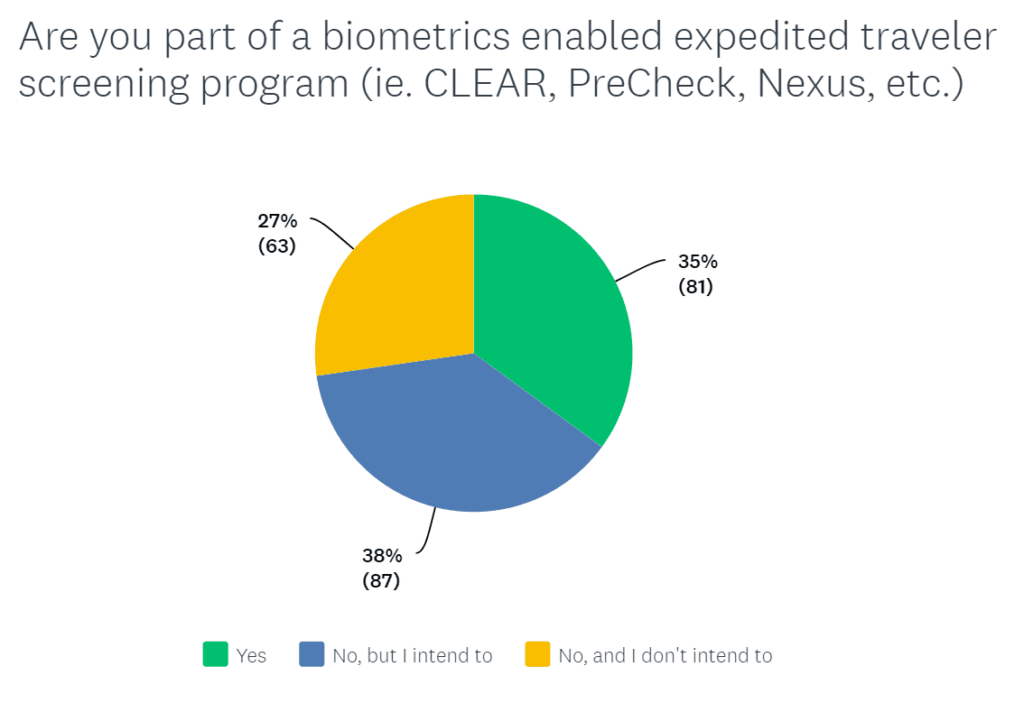
Biometrics-based expedited screening systems have continued to spread to more airports around the world over the past year. In the US these have taken a few different forms, such as TSA PreCheck, Nexus, and the expanding CLEAR program, in which travelers register their biometrics ahead of time in order to speed up the screening process when they get to the airport.
For the biometrics industry professionals who participate in FindBiometrics’ annual Year in Review survey, these programs have generally been received with enthusiasm. In this year’s results, for example, 35 percent of participants responded in the affirmative to the question, ‘Are you part of a biometrics enabled expedited traveler screening program?’ and 38 percent said, ‘No, but I intend to”. That adds up to almost three quarters of respondents indicating that they’re in favor of these kinds of programs.

There is a bit of a twist this year, though. Twenty-seven percent of respondents selected the negative answer – “No, and I don’t intend to”. That’s up somewhat from last year’s results, in which only 23 percent of respondents indicated that they weren’t interested in these kinds of traveler screening programs. In other words, there seems to be a growing contingent of industry professionals who aren’t comfortable with expedited screening – despite their familiarity with the kind of biometric technology that tends to be used in these programs.
It isn’t clear what has caused this change, but it may be worth noting that 2019 saw more controversy than ever over police and government use of facial recognition technology, even as it spread to more airports through US Customs and Border Protection’s expanding biometric screening program. Even though programs like CLEAR and TSA PreCheck are voluntary, it’s possible that the growing concerns around face scanning at US airports (not to mention many others around the world) have in some way tainted the appeal of voluntary screening programs for at least some people in the industry. It will be fascinating to track these attitudes in the coming years, as biometric screening becomes more ubiquitous.
In any case, there remains a solid majority of Year in Review respondents who either have registered for expedited airport screening programs or plan to, and there’s no reason to expect these programs’ expansion to stop anytime soon.
*
The 2019 FindBiometrics Year in Review is made possible by our sponsors: Aware, Inc., Clear, IDEMIA, SecuGen, Iris ID, FacePhi, Jumio, BioConnect, BIO-key.
–
January 23, 2020 – by Alex Perala





Follow Us